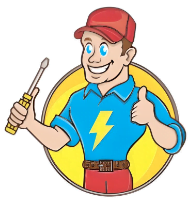The Role of Electrical Engineers in Renewable Energy
The Role of Electrical Engineers in Renewable Energy
Renewable Energy comes from natural sources that are constantly replenished, such as solar, wind, hydro, biomass, geothermal, and hydrogen. Renewable energy is more sustainable and environmentally friendly than fossil fuels, contributing to greenhouse gas emissions and global warming. According to the U.S. Energy Information Administration, renewable energy accounted for about 20% of U.S. electricity generation in 2020, up from 17% in 2019.
Electrical engineers design, develop, test, and supervise the manufacture of electrical and electronic systems and devices. Electrical engineers are vital in developing and implementing renewable energy technologies and solutions. They are involved in every stage of the renewable energy process, from generation and transmission to distribution and utilization.
In this blog post, we will explore some of the main areas of work and responsibilities of electrical engineers in renewable energy and some of the skills and qualifications required for this career path.
Generation
Generation is the process of converting renewable energy sources into electrical power. Electrical engineers are responsible for designing, building, and maintaining the electrical components and systems that enable this conversion. For example:
- Solar power: Electrical engineers design and optimize solar panels, solar cells, inverters, converters, controllers, and other devices that capture and convert solar radiation into electricity.
- Wind power: Electrical engineers design and optimize wind turbines, generators, motors, blades, gearboxes, sensors, controllers, and other devices that capture and convert wind energy into electricity.
- Hydropower: Electrical engineers design and optimize dams, turbines, generators, pumps, valves, pipes, sensors, controllers, and other devices that capture and convert water flow or pressure into electricity.
- Biomass power: Electrical engineers design and optimize boilers, turbines, generators, combustors, gasifiers, digesters, filters, sensors, controllers, and other devices that capture and convert organic matter into electricity.
- Geothermal power: Electrical engineers design and optimize wells, turbines, generators, heat exchangers, pumps, pipes, sensors, controllers, and other devices that capture and convert heat from the earth into electricity.
- Hydrogen power: Electrical engineers design and optimize fuel cells, electrolyzers, compressors, storage tanks, sensors, controllers, and other devices that capture and convert hydrogen into electricity.
Transmission
Transmission is the process of transporting electrical power from generation sites to the distribution networks or load centers. Electrical engineers are responsible for designing, building, and maintaining the electrical components and systems that enable this transportation. For example:
- High-voltage transmission lines: Electrical engineers design and optimize transmission towers, cables, insulators, switches, breakers, relays, transformers, and other devices that carry high-voltage electricity over long distances.
- Substations: Electrical engineers design and optimize substations that perform voltage regulation, power factor correction, frequency conversion, fault detection, and protection.
- Smart grids: Electrical engineers design and optimize smart grids that use digital technology to monitor and control power flow. Smart grids can integrate renewable energy sources, demand response, storage, and distributed generation. They can improve the power system’s efficiency, reliability, security, and sustainability.
Distribution
Distribution delivers electrical power from the transmission networks or substations to the end-users or consumers. Electrical engineers are responsible for designing, building, and maintaining the electrical components and systems that enable this delivery. For example:
- Low-voltage distribution lines: Electrical engineers design and optimize distribution poles, cables, transformers, meters, switches, breakers, fuses, and other devices that carry low-voltage electricity over short distances.
- Microgrids: Electrical engineers design and optimize microgrids, small-scale power systems that can operate independently or are interconnected with the main grid. Microgrids can use renewable energy sources, energy storage, and load management to provide reliable and resilient power to local communities or facilities.
- Electric vehicles: Electrical engineers design and optimize electric vehicles (EVs) that use electric motors instead of internal combustion engines. EVs can reduce emissions, noise, maintenance costs, and fuel consumption. Electrical engineers also design and optimize EV charging stations that can supply or receive power from EVs.
Utilization
Utilization is the process of using electrical power for various purposes or applications. Electrical engineers are responsible for designing,
building, and maintaining the electrical components and systems that enable this usage. For example:
- Lighting: Electrical engineers design and optimize lighting systems using LED lamps, solar lamps, or other energy-efficient sources to illuminate.
- Heating and cooling: Electrical engineers design and optimize heating and cooling systems that use heat pumps, solar heaters, or other renewable sources to provide thermal comfort.
- Appliances and devices: Electrical engineers design and optimize appliances and devices that use electricity to perform various functions or tasks, such as refrigerators, washers, dryers, computers, televisions, phones, etc.
Skills and Qualifications for a Renewable Energy Engineer
To become an electrical engineer in renewable energy, you must have a bachelor’s degree in electrical engineering or a related field from an institution accredited by the Accreditation Board for Engineering and Technology (ABET). You will also need some practical experience in renewable energy projects, which you can gain through internships, co-ops, or entry-level jobs.
In addition to your education and experience, you will need to have the following skills and qualifications:
- Technical skills: You must have strong knowledge and skills in electrical engineering concepts, principles, and techniques, such as circuits, electronics, signals and systems, electromagnetics, control theory, digital logic, microprocessors, etc. You must also be proficient in using various tools and software, such as MATLAB, Simulink, LabVIEW, AutoCAD, etc.
- Problem-solving skills: You must identify, analyze, and solve complex problems in renewable energy systems or components. You will also need to be able to troubleshoot and debug any issues or errors that may arise.
- Creativity skills: You must develop innovative ideas and solutions for renewable energy challenges. You will also need to be able to adapt and improvise to changing situations or requirements.
- Communication skills: You must communicate effectively with various stakeholders, such as clients, managers, colleagues, vendors, contractors, etc. You will also need to be able to write clear and concise reports, proposals, manuals, etc.
- Teamwork skills: You will need to be able to work collaboratively with other engineers or professionals from different disciplines or backgrounds. You will also need to be able to coordinate and manage multiple tasks or projects simultaneously.
- Project management skills: You will need to be able to plan, organize, execute, monitor, and control renewable energy projects from start to finish. You will also need to be able to manage the budget, schedule, scope, quality, and risks of the projects.
Conclusion
Electrical engineers play a crucial role in renewable energy by designing, building, and maintaining the electrical components and systems that enable the generation, transmission, distribution, and utilization of renewable power. Electrical engineers can work on various renewable energy projects, such as solar, wind, hydro, biomass, geothermal, and hydrogen. Electrical engineers can also work on multiple renewable energy applications, such as lighting, heating and cooling, appliances and devices, and electric vehicles. To become an electrical engineer in renewable energy, you will need to have a bachelor’s degree in electrical engineering or a related field, some practical experience in renewable energy projects, and the following skills and qualifications:
- Technical skills
- Problem-solving skills
- Creativity skills
- Communication skills
- Teamwork skills
- Project management skills
Frequently Asked Questions (FAQs)
1. What is the role of electrical engineers in renewable energy?
- Electrical engineers play a crucial role in designing, developing, and maintaining renewable energy systems, such as solar, wind, and hydropower.
2. How do electrical engineers contribute to developing solar energy systems?
- Electrical engineers design photovoltaic (PV) systems, inverters, and battery storage solutions to harness solar energy efficiently.
3. Can you explain the role of electrical engineers in wind energy projects?
- Electrical engineers design wind turbine generators, power electronics, and grid integration systems for wind energy farms.
4. What is the significance of electrical engineers in hydropower generation?
- Electrical engineers work on the design and maintenance of hydroelectric power plants, including generators, transformers, and power distribution systems.
5. How do electrical engineers contribute to the grid integration of renewable energy sources?
- They develop smart grid technologies, energy storage solutions, and control systems to integrate renewable energy into the existing power grid.
6. Can electrical engineers improve the efficiency of renewable energy systems?
- Yes, electrical engineers optimize the performance of renewable energy systems through advanced control algorithms and energy management systems.
7. What skills do electrical engineers need to work in renewable energy?
- Skills in power electronics, control systems, energy management, and grid integration are essential for renewable energy projects.
8. Are there specialized certifications for electrical engineers in renewable energy?
- Yes, certifications like the NABCEP (North American Board of Certified Energy Practitioners) can validate expertise in solar energy.
9. Can electrical engineers work on international renewable energy projects?
- Yes, many electrical engineers work on global renewable energy projects, addressing energy needs worldwide.
10. How do electrical engineers contribute to energy storage solutions for renewable energy?
- They design and develop energy storage systems, such as batteries and capacitors, to store excess energy generated by renewables.
11. Can you explain the role of electrical engineers in bioenergy and geothermal projects?
- Electrical engineers work on control systems and power generation technologies for bioenergy and geothermal projects.
12. What is the future outlook for electrical engineers in renewable energy?
- The future is promising, with increasing demand for renewable energy solutions to address climate change and energy sustainability.
13. How can aspiring electrical engineers specialize in renewable energy during their education?
- Choose relevant courses, participate in renewable energy research, and seek internships or projects in the field.
14. Are there opportunities for electrical engineers in emerging renewable energy technologies like tidal or wave energy?
- Yes, emerging technologies offer opportunities for electrical engineers to contribute to renewable energy innovation.
15. What advice do you have for electrical engineers interested in a career in renewable energy?
- Stay updated on industry trends, network with professionals, and consider pursuing advanced degrees or certifications to enhance your expertise in the field.




